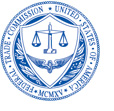High-Rate, High-Fee Home Loans
If you’re refinancing your mortgage or applying for a home equity installment loan, you may have protections under the Home Ownership and Equity Protection Act (HOEPA). This law deals with deceptive and unfair practices in home equity lending, and includes requirements for certain loans with high rates or high fees. These loans also are called “Section 32 Mortgages” after the section of the law that addresses them.
HOEPA Loans
A loan is covered by HOEPA if it meets the following criteria:
- for the original mortgage on the property, the annual percentage rate (APR) exceeds the rates on Treasury securities of comparable maturity by more than eight percentage points;
- for a second mortgage, the APR exceeds the rates on Treasury securities of comparable maturity by more than 10 percentage points; or
- the total fees and points payable by the borrower at or before closing exceed the larger of $625 or eight percent of the total loan amount. (The $625 figure is for 2013. This amount is adjusted annually by the Consumer Financial Protection Bureau, based on changes in the Consumer Price Index.) Credit insurance premiums written in connection with the transaction are counted as fees.
HOEPA does not cover loans to buy or build your home, reverse mortgages, or home equity lines of credit.
Disclosure Requirements
If your loan meets the HOEPA criteria, the lender must give you several disclosures at least three business days before closing on the loan:
- A written notice stating that the loan does not need to be finalized, even though you’ve signed the application and received the required disclosures. You have three business days to decide whether to sign the loan agreement after you receive the Section 32 disclosures.
- The notice must warn you that, because the lender will have a mortgage on your home, you could lose the residence and any money you put into it if you don’t make the payments.
- The APR, the regular payment amount (including any balloon payment), and, in a mortgage refinancing, the loan amount (plus when the amount borrowed includes credit insurance premiums, that fact must be stated). For variable rate loans, the lender must disclose that the rate and monthly payment may increase, and the amount of the maximum monthly payment.
Banned Features
High-rate, high-fee loans ban the following:
- Balloon payments — when the regular payments do not pay off the principal balance and a lump sum payment of more than twice the amount of the regular payments is required — for loans with less than five-year terms. One exception: Balloon payments for bridge loans of less than one year that are used to buy or build a home are allowed.
- Negative amortization — an increase in the balance of a loan caused by adding unpaid interest to the loan balance. This occurs when the regularly scheduled payment does not cover the interest due.
- Default interest rates that are higher than pre-default rates.
- Rebates of interest upon default that are calculated by any method less favorable than the actuarial method.
- A repayment schedule that consolidates more than two regularly scheduled payments that are to be paid in advance from the proceeds of the loan.
- Most prepayment penalties, including refunds of unearned interest calculated by any method less favorable than the actuarial method. The exception is if:
- the lender verifies that your total monthly debt (including the mortgage) is 50 percent or less of your monthly gross income;
- you get the money to prepay the loan from a source other than the lender or an affiliate lender;
- the lender exercises the penalty clause during the first two years after the start of the mortgage; and
- the amount of the regularly scheduled payment for principal and interest cannot change during the first four years after the start of the loan.
- A due-on-demand clause, except if:
- you commit fraud or deliberately hide or falsify facts related to the loan;
- you don’t repay the loan according to the terms of the agreement; or
- you take any action that adversely affects the creditor’s security.
Lenders also may not:
- make loans based on the collateral value of your property without considering your ability to repay the loan as of the start of the loan, including your current and reasonably expected income, employment, assets other than the collateral, and current obligations (including those related to mortgages). In addition, proceeds for home improvement loans must be disbursed directly to you, jointly to you and the home improvement contractor or, in some instances, to the escrow agent.
- refinance a HOEPA loan into another HOEPA loan within the first 12 months of origination, unless the new loan is in your best interest. This rule also applies to assignees (persons or entities) holding or servicing the loan.
- wrongfully document a closed-end, high-cost loan as an open-end loan. For example, a high-cost mortgage may not be structured as a home equity line of credit if there is no reasonable expectation that additional transactions will occur.
If a Lender Violates the Law
You may have the right to sue a lender that violates HOEPA requirements. If you win, you may be able to recover statutory and actual damages, court costs and attorney’s fees. In addition, you may be able to cancel the loan for up to three years after you closed on the loan.
